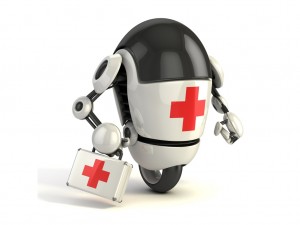In his article, Ackerman addresses the topic of autonomy, and discusses how non-interference is often classified as the key feature in respect for personal autonomy. Ackerman rejects this claim, and argues that in order to truly respect a patient’s autonomy, a doctor must go beyond the lines of mere honesty and proper instruction.
A person’s autonomy is not set in stone, and has the potential to fluctuate depending on whether or not there are impeding constraints. Starting with the most obvious of constraints, there is no argument that the effects of a patient’s illness can alter their viewpoints and perspectives, or even render them as incompetent if such illness is severe enough. In PBE, Beauchamp and Childress argue that there are three criteria for autonomous actions; intentionality, understanding, and lacking controlling influences. In the case of a patient who is suffering from a debilitating illness, there is a clear pathway for the first two aspects of the theory to be violated, and while these two criteria are easy ways for a doctor to be morally sound in evoking paternalism, I believe it is the third criteria on noncontrolling influences that poses the biggest issue for doctors and the concept of non-interference in regards to patient autonomy.
Illnesses and the side effects that go along with them, while not always straightforward and parallel among patients are essentially simple ways for a healthcare physician to assess a person’s autonomy and determine whether intervening should be necessary. For example, if the patient underwent severe trauma to their frontal lobe, the brain region known for being in charge of executive decision making, the doctor should be fast to intervene and exert a certain air of paternalism. All that is required of the doctor in this case is a thorough knowledge in the medical field. Figuratively speaking, my neuroscience textbook could have come to the same conclusion. Unfortunately, determining one’s level of autonomy is not solely based off of physical and health constraints, but also social and psychological constraints. A patient could be physically healthy, but if influenced by their family or friends enough, there’s no telling what decision they could come to. Similarly, if a patient has psychological constraints such as depression, fear, or anxiety, that could also lead them into making influenced decisions. While these constraints would violate Beauchamp and Childress’ third criteria of autonomous action, should the doctor be so quick to disregard the patient’s autonomy, or should the doctor work towards restoring that patient’s autonomy before using their power advantage to take control of the situation? In regards to this question, I have to take the side of Eric Cassell in The Healer’s Art where he determines the most destructive aspect to the sick to be their loss of control, and it is the doctor’s duty to return that control to the patient.
The question now lingers, how can doctors return control to a patient? I can tell you definitively that non-interference is not the answer. In order for a doctor to be able to return control to a patient, the doctor needs to go far beyond the role of technician and information database, and must move into a totally different realm of doctor patient interaction. This entails that the doctor, while not expected to know every detail about their patient’s life and character, should have a decent way of gauging how their patient is thinking and feeling, and altering treatment and/or the dispersal of information accordingly. For example if the doctor is dealing with a timid fearful patient, he should be expected to speak in a friendly manner and be careful not to further scare the patient, especially if the patient fears life saving surgery.
In conclusion, while a patient’s autonomy and ability to maintain control should maintain a number one priority when being dealt with, it would be ironic to say that the means to achieve this is through non-interference. If doctors practiced medicine solely on the basis of providing their honesty and accurate information, we would already have robots taking over the jobs of physicians. However, there are many cases where only through a doctor’s interference can a patient maintain their own autonomy in the face of controlling factors, and might also be the reason your doctor isn’t an M.D C.P.U.
Works Cited:
Ackerman, Terrance “Why Doctors Should Intervene” The Hastings Center Report 12 (4): 14-17 (1982)
Beauchamp, Tom L., and James F. Childress. “Respect For Autonomy.” Principles of Biomedical Ethics. New York: Oxford UP, 2013. 101-41. Print.
Cassell, Eric J. The Healer’s Art. Cambridge, MA: MIT, 1985. 44. Print.
http://i.kinja-img.com/gawker-media/image/upload/s–asXqXq-r–/187qi10x34gxijpg.jpg
